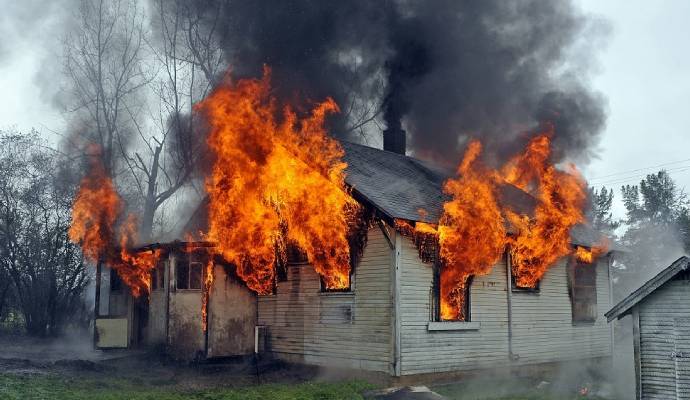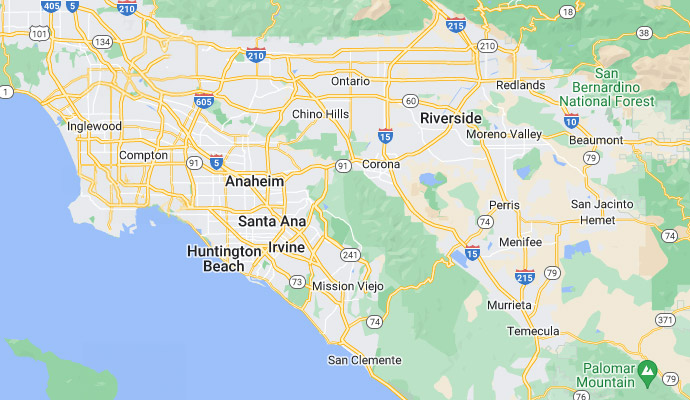
Home Safety Tips for Fire Prevention
There are several essential tips to follow for preventing fire.
One of the most important things to consider when securing an apartment is to protect the building from fire.
Fire is one of the most common types of accidents in houses. Ensuring building safety against fire is especially important in towers and skyscrapers. A large number of occupants in a tall building can significantly increase the damage consequences of a massive fire.
Consequently, rules and principles have been set to prevent fires in towers and tall buildings.
In addition, anyone can make arrangements to prevent a fire in their home.
Fire preparedness and safety precautions will prevent irreparable damage.
In residential complexes, owners must take the necessary measures to provide safe conditions for their units. This article will discuss the essential tips for home safety to prevent fire and such incidents from occurring.
Install Smoke Sensitive Sensor
It is necessary to install smoke-sensitive sensors in the building. These sensors warn of the presence of smoke. Please note that installing smoke-sensitive detectors in more than five-floor buildings and towers is obligatory.
It’s a good idea to install a smoke alarm in your home as well. In this case, you can prevent a large fire. Again, you should test sensors monthly and continuously to make sure they are working correctly.
When installing the alarm device, make sure that all family members hear the alarm in any house room. Then determine the right place to install the device at home. If the alarm is battery operated, check the battery regularly for depletion.
Seek advice from our experts at DKI Restotech.
Kitchen, the Place Where Fire May Start
The kitchen is where the risk of fire starts.
It is vital to follow the safety tips in the kitchen.
It is necessary to pay attention to the following points regarding kitchen safety.
Watch out!
Keep the stove away from flammable appliances such as curtains, towels, and handles.
Do not place hot objects such as hot plates near flammable chemicals.
Be sure to keep a fire extinguisher in the kitchen.
When leaving the house, turn off all the flames of the stove.
Check appliances such as microwave ovens, coffee makers, and toasters and ensure they do not have power outages.
Do not place the handle of the pot or pan in the direct heat of the stove flame.
Home Appliances Location
When it comes to home safety, pay attention to appliances.
Appliances such as a stove in the kitchen can increase the risk of fire.
You should pay attention to the location of the stove in the kitchen. Do not place this appliance near the window as much as possible. According to global statistics, half of the fires start in the kitchen.
There are several ways to make this place safe.
Contact us for better safety suggestions.
Safety Tips for Bedroom
The bedroom is also of high importance in fire safety measures.
Take care when choosing carpets and mattresses or other items used in the bedroom made of fibers that are sensitive to heat.
Choose a bed mattress made of non-flammable chemicals.
Abstain from smoking in bed.
Use a suitable heater for the bedroom. Wall heaters can cause fires in the bedroom.
Make sure the room is adequately vented.
Living Room
Consider the quality of home wall paint or wallpaper used in different house parts, especially the living room.
This place is the location of the fireplace and heater. So, take great care and choose suitable paint material and wallpapers for your living room. Material that is not sensitive to heat.
In the living room, place flammable items such as paper, clothes, and carpets at a suitable distance from the heater or fireplace.
Cover the front of the fireplace with a shield so that sparks do not jump to the floor.
Never let electrical wiring be cluttered.
The wires should not be placed under the carpet or in places with high crossings.
Never put light candles near flammable items such as blankets and curtains. Instead, place candles in a safe and secure candle holder, and put them out when leaving the house or sleeping. Talk to us!
Check Out Your Vase!
Sometimes, substances in the soil of the vase and fertilizers used for apartment pots contain flammable materials. These materials are sensitive to heat and sunlight.
Be careful not to extinguish your cigarette in the pot.
Check Out Carbon Monoxide
Check for carbon monoxide in your home. The presence of carbon monoxide in the house is hazardous, and you should take the necessary measures to prevent it from leaking.
Carbon monoxide does not cause fire, but it is perilous. Carbon monoxide is an odorless, colorless gas emitted from the combustion of carbonated materials such as fuel.
The risk of fire and carbon monoxide poisoning increases when you cook on the stove or use the fireplace. It is best to use dual sensors that detect both smoke and carbon dioxide emissions to prevent this.
Safety Principles to Prevent Fire
Observe safety principles to prevent fire. Some preventative measures, although petty and insignificant, are very effective in preventing fires.
Keep flammable and dangerous items such as lighters and matches out of the reach of children.
Many household items, such as cleaners and cosmetics, are flammable. To prevent fires, do not expose these devices to sunlight and heat.
In addition to the above, you should insure your house against fire and other accidents.
Observing the above can reduce fire risk, but insurance can compensate for the damage.
Our expert team at DKI Restotech in Orange County offers you the best home safety tips for fire prevention.












